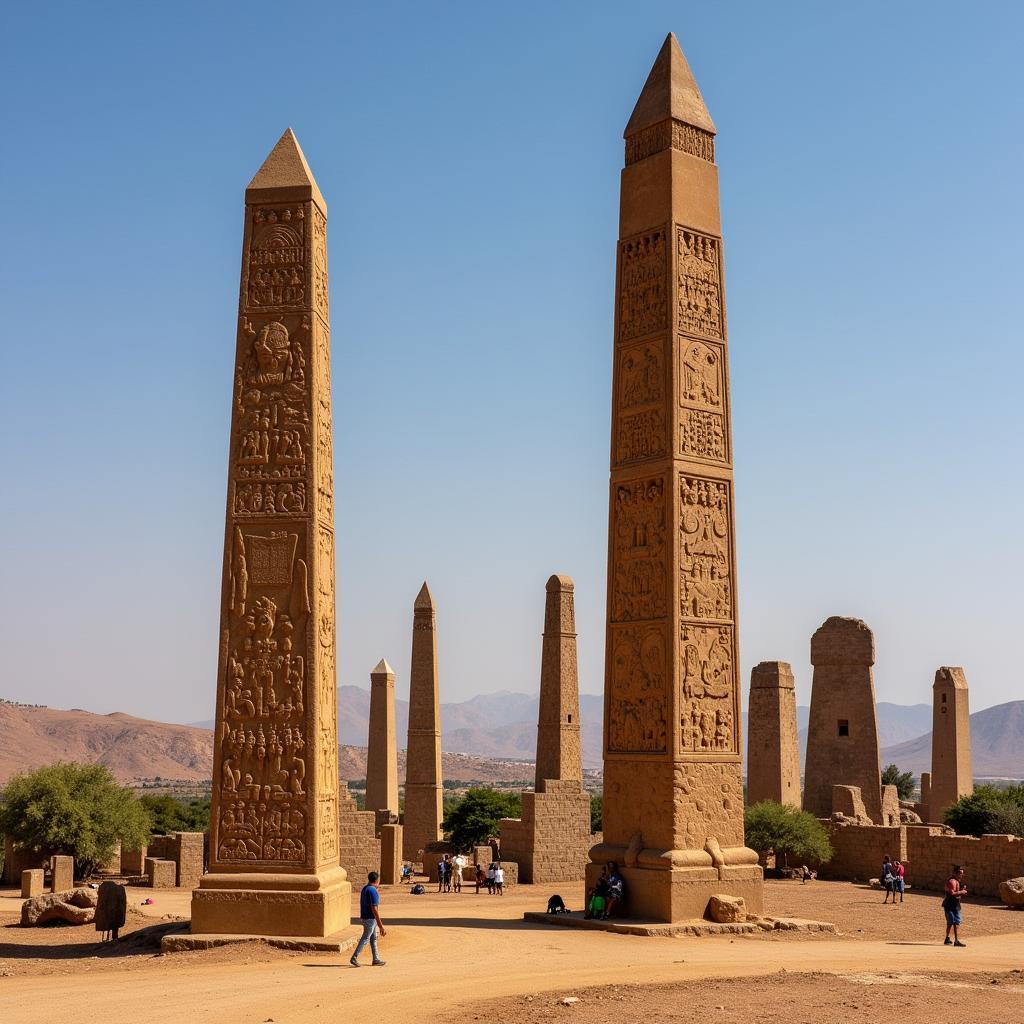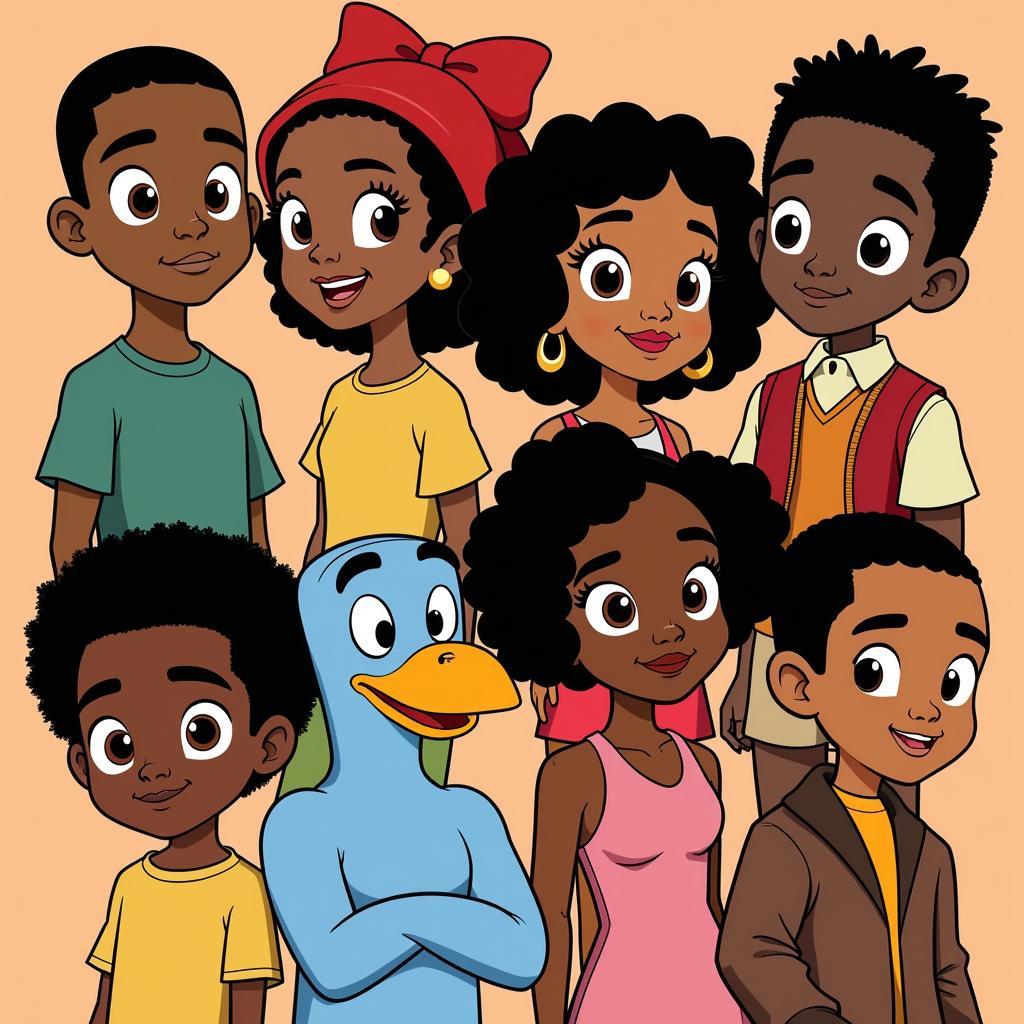African Feminist Books and Their Publishing Years
African feminist literature offers a rich tapestry of voices, perspectives, and experiences, challenging patriarchal norms and celebrating the resilience and strength of African women. Discovering these powerful narratives often involves searching for “African feminist books and their publishing years,” a quest to understand the evolution of this vital literary movement. This article delves into the world of African feminist writing, exploring key works and their historical context.
Exploring Key Themes in African Feminist Literature
African feminist literature tackles a wide range of complex themes, often intertwined with the socio-political landscape of the continent. From challenging traditional gender roles to confronting the legacies of colonialism and neocolonialism, these works offer nuanced insights into the lives of African women. Recurring themes include:
- The Impact of Colonialism: Many authors explore how colonial structures exacerbated existing gender inequalities and introduced new forms of oppression.
- Female Genital Mutilation: This harmful practice is often addressed, highlighting the physical and psychological trauma it inflicts.
- Education and Empowerment: The importance of education for women’s liberation and empowerment is a recurring motif.
- Motherhood and Family: The complexities of motherhood and family dynamics within patriarchal societies are explored with depth and sensitivity.
- Intersectionality: African feminist writers often examine how gender intersects with other forms of identity, such as race, class, and sexuality.
Pioneering Voices: Early African Feminist Works and Their Publishing Years
The foundation of African feminist literature was laid by pioneering writers who dared to challenge the status quo. Their works, often published amidst significant social and political upheaval, provided a crucial platform for women’s voices to be heard.
- Flora Nwapa’s Efuru (1966): This novel is considered a landmark in African literature, portraying the life of an Igbo woman who defies societal expectations.
- Mariama Bâ’s So Long a Letter (1981): A poignant exploration of polygamy and its impact on women in Senegal.
These early works paved the way for subsequent generations of writers to explore feminist themes with greater depth and nuance.
Contemporary African Feminist Voices and Their Publishing Years
Contemporary African feminist literature continues to evolve, engaging with new challenges and perspectives. These writers often incorporate elements of magical realism, Afrofuturism, and other innovative literary techniques.
- Chimamanda Ngozi Adichie’s Half of a Yellow Sun (2006): Though not solely focused on feminism, this novel provides powerful insights into the experiences of women during the Nigerian Civil War.
- NoViolet Bulawayo’s We Need New Names (2013): This novel explores the challenges faced by young Zimbabwean women navigating poverty and migration.
These contemporary voices offer fresh perspectives on African feminism, pushing boundaries and sparking important conversations.
Why Knowing the Publishing Years Matters
Understanding the publishing years of these books provides crucial context. It allows readers to connect the literature to the historical and social events that shaped it. For example, knowing that So Long a Letter was published in 1981 allows us to appreciate its relevance to the feminist movements gaining momentum at that time.
Conclusion
African feminist books and their publishing years offer a powerful lens through which to understand the complex realities of African women’s lives. From pioneering voices to contemporary authors, this diverse body of literature continues to challenge, inspire, and empower. By exploring these works and their historical context, we can gain a deeper appreciation for the ongoing struggle for gender equality in Africa.
FAQ
- What are some key themes in African feminist literature? Key themes include the impact of colonialism, female genital mutilation, education and empowerment, motherhood and family, and intersectionality.
- Who are some pioneering African feminist writers? Flora Nwapa and Mariama Bâ are considered pioneers of African feminist literature.
- Why is it important to know the publishing years of these books? Knowing the publishing years provides historical context and allows readers to connect the literature to the social and political events of the time.
- Where can I find more information about African feminist literature? Academic journals, online resources, and libraries offer a wealth of information on this topic.
- Are there any online communities dedicated to discussing African feminist literature? Yes, various online forums and book clubs focus on African literature, including feminist works.
- What are some contemporary African feminist writers to explore? Chimamanda Ngozi Adichie and NoViolet Bulawayo are prominent contemporary voices in African feminist literature.
- How has African feminist literature evolved over time? It has evolved to encompass a wider range of themes and perspectives, incorporating diverse literary styles and engaging with contemporary issues.
Other Questions and Related Articles
- Exploring the Role of Oral Tradition in African Feminist Narratives
- The Influence of African Feminist Literature on Global Feminist Discourse
- Recommended Reading Lists for African Feminist Literature
For any assistance, please contact us at Phone: +255768904061, Email: kaka.mag@gmail.com, or visit our office at Mbarali DC Mawindi, Kangaga, Tanzania. We have a 24/7 customer service team.


